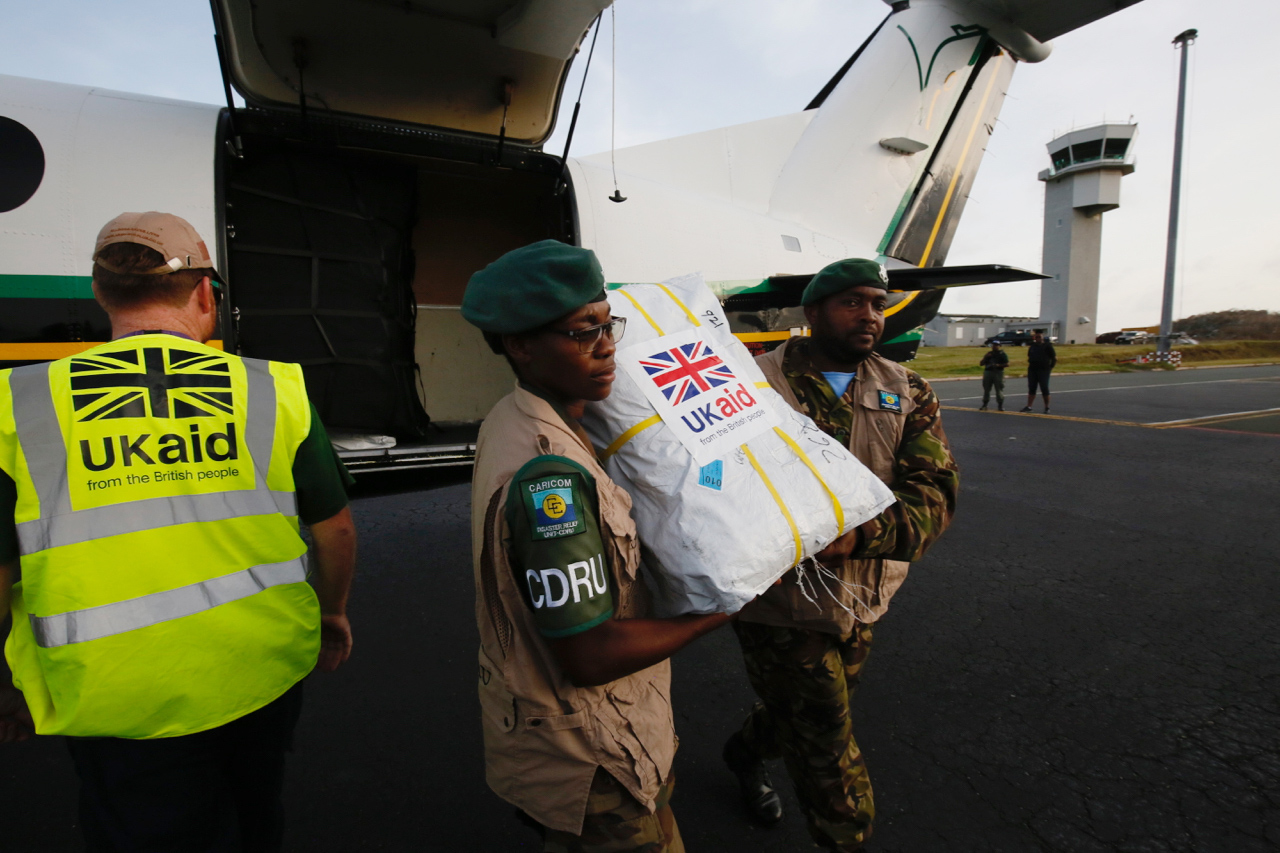My previous blog post argued that the British government should make clear that its new “Fusion Doctrine” should apply to international development. In this blog post, I look at the topical debate about the quality of aid spending across government.
Successive governments have long felt that UK Department for International Development (DFID) needs to work better with the rest of Whitehall. There have been efforts to join up better in government, sometimes successfully, but there remains a feeling in Whitehall that DFID is too tribal, too protective of its budget, and unwilling to roll up its sleeves to contribute to the government’s wider priorities including security, economic opportunities, and influence.
The 2015 Aid Strategy stepped up the pressure on DFID by distributing the government’s aid budget more liberally across other government departments. Management of British aid has been largely concentrated in one department since the establishment of the Department for Technical Cooperation in 1961, and this has for the most part been regarded as a virtue. But as fiscal austerity began to bite across government the Treasury realised that the government could alleviate some of the pain—while meeting its commitment to spend 0.7% of national income on aid—by spreading the aid budget across government, thus giving a helping hand to the budgets of departments such as the foreign office, ministry of defence, research councils, and department of health.
The Treasury’s motivation for the strategy of parcelling out the aid budget across Whitehall was in my view largely a cynical attempt to reduce the hissing of the geese as they were plucked. But leaving this aside, in principle there are some good reasons for supporting greater involvement by the rest of the government to be more involved in aid spending:
-
Those departments have expertise, resources, and networks that DFID does not have. For example, the Department of Health may be better at tackling global health problems than DFID.
-
The UK interests that those departments are mandated to pursue are important and legitimate concerns, and DFID frequently and overconscientiously sets them aside. If taxpayers’ money can contribute to development and to Britain’s own interests at the same time, that is a “win-win” for everyone.
-
There may be benefits from joining up the government’s approaches. If the department responsible for collecting UK tax revenue is also using aid money to improve tax collection overseas, both these objectives might be better achieved than if they were pursued separately.
-
Engaging other departments in spending aid builds support for maintaining Britain’s commitment to the aid target; if the money is jealously guarded by DFID, while budgets elsewhere are reduced, this builds up resentment and opposition within government.
-
Contestability is good. DFID has a well-deserved reputation for excellence, but there is a fine line between that and complacency. Requiring DFID to make its case rather than get the money automatically helps to keep it at the cutting edge.
-
Allowing other government departments to spend aid gets them interested in international development, and encourages them to think more about how their broader approach and policies affect international development. (Anecdotally, this seems to be happening, with more networks now emerging across Whitehall to discuss broader development issues).
On the other side of the ledger are some serious possible downsides to having aid administered by other government departments:
-
The effectiveness of aid may be diminished by these departments’ pursuit of their other (perfectly legitimate) goals. For example, research grants which count as ODA are being tied to British institutions. This makes sense if your mandate is to finance British research institutions, but may be less effective than if the funding were given to overseas institutions. The win-win may come at the expense of less effectiveness from a purely development perspective.
-
Unlike DFID, the other departments do not have the expertise and systems to manage and evaluate aid projects well.
-
The coherence of development programming may be reduced, as different departments with different world views all spend money on their priorities. For example, DFID might promote cheap energy in countries at the same time as another department is promoting an end to the use of fossil fuels.
-
There are returns to scale in aid administration: spreading it thinly may increase overhead costs.
These drawbacks are not entirely theoretical. The parliamentary watchdog ICAI has produced a series of reports into the administration of ODA by cross-government funds which are critical of the way the money has been used so far (for example, here, here and here). These funds need better governance, mandates and skills if they are to be credible administrators of British aid.
How to make it work?
The Development Secretary’s speech on Thursday would be a good opportunity for the government to set out how it proposes to ensure that aid is spent effectively, whether it is spent by DFID or by other parts of government. The National Security Capability Review proposed changes in governance of the cross-government funds which, bizarrely, seem calculated to move in the wrong direction (for example, by putting them under the control of the Chancellor of the Duchy of Lancaster, and in the service of the Fusion Doctrine as narrowly defined in that review).
One option is to strengthen the Ministerial committee, which is currently co-chaired by the Development Secretary and the Chief Secretary to the Treasury. This could be chaired by the Development Secretary alone, and given oversight of standards and evidence in all UKAID (for example, ensuring that every department follows the highest standards of safeguarding). It would help to reduce the risk that development effectiveness is being disproportionately diminished in pursuit of some other government objective, and help spread best practice.
But there is a difficulty, which is that spending decisions and accountability are ultimately for the Minister and Accounting Officer of the department concerned. We have no tradition in the UK of joint spending responsibility, and DFID will want to avoid a situation in which it has little real power over how money is spent, but finds it has its hands in the mangle when things go wrong.
One important step is for the government to make sure that non-DFID aid is transparent, at least to the same degree as DFID aid (which itself still has some way to go). This would mean that other government departments could be better held to account not by DFID but by Parliament, the media, and the public. The quality of aid will go up pretty quickly when departments have to be open about what they are doing and why. The government says it will increase the transparency of non-DFID aid, but the other departments do not have the same culture of transparency. And like DFID, it is important to create a culture of accountability to the intended recipients or beneficiaries of aid, as they are the people who really know what is working.
The recent Labour Party policy statement, A World for The Many Not The Few, makes sensible proposals. Labour suggest that ODA allocations should be signed off by the Chancellor and the Development Secretary. They propose that DFID should give more support and technical assistance to the rest of government through training, capacity building, and systems strengthening. And they propose to make it more explicit that the International Development Committee and the Independent Commission for Aid Impact have parliamentary oversight of aid spent by other departments.
What I’d like to hear from the Development Secretary
The government should set out a credible strategy for how it will ensure that aid spent by the parts of government that have not traditionally done so will be spent well, against the background of mounting evidence that it is not. The government needs to face up to this with something more sensible than the proposals in the National Security Capability Review if it is to avoid the risk that poorly-administered aid will bring the whole system into disrepute.
Disclaimer
CGD blog posts reflect the views of the authors, drawing on prior research and experience in their areas of expertise. CGD is a nonpartisan, independent organization and does not take institutional positions.





